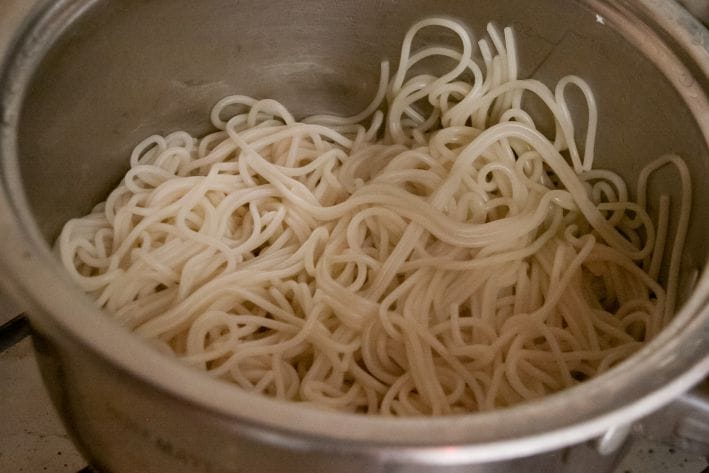Debates about when to salt pasta water rage in kitchens and science labs.
The myth that salt slows down boiling has long been debunked, but many people still follow outdated rules.
Professor Harold McGee, in his iconic book On Food and Cooking, points out:

"Salt does not affect the boiling point at home. To notice a difference, you would have to add so much salt that the water would become undrinkable."
Scientific calculations confirm that to increase the boiling point by 1°C, 120 grams of salt per liter of water is required - this is four times more than is usually used even in the most daring recipes.
So when should you add salt? Chef Laurie Santos of the Culinary Institute of America advises waiting until the water begins to “sing” — making a distinctive noise before it starts to actively boil.
"If you add salt too early, it will settle to the bottom of the pan. If you add it too late, it won't have time to dissolve," she explains.
An experiment conducted by the Serious Eats team found that pasta cooked in water with salt added at the first bubble stage had a more uniform flavor.
The crystals have time to dissolve and penetrate the structure of the paste, enhancing its natural sweetness.
But there are nuances that even professionals are silent about.
For example, the type of salt. Sea salt with large crystals dissolves more slowly than fine table salt.
Chef Massimo Bottura recommends in an interview for Gambero Rosso :
"Use coarse salt - it contains fewer additives and gives a clean taste."
But it is better to avoid iodized salt: iodine can give pasta a metallic taste.
Interestingly, in some regions of Italy, pasta is cooked in a saturated salt solution, reminiscent of sea water.
Chef Giacomo Pezzuti from Sicily shares a family secret:
"We add salt to cold water, but then bring it to a boil over high heat. This way the salt doesn't settle and the paste absorbs it evenly."
This method is supported by a study in the Journal of Culinary Science , which compared different techniques: pasta cooked "Sicilian style" had 15% more pronounced flavor.
And what about rinsing pasta after cooking? Everyone agrees on this, from Apulian grandmothers to Michelin chefs.
Water with starch is the golden ingredient for sauce.
Chef Luca Fantuantonio of Rome's Roscioli restaurant explains:
"I add a ladle of starch water to the pesto sauce. It binds the butter and cheese, turning them into a silky glaze."
Home cooks on the Italian Food Forever forum confirm:
- "Before, the sauce would run off the pasta. Now, thanks to the starch, it sticks like clinging snow."
